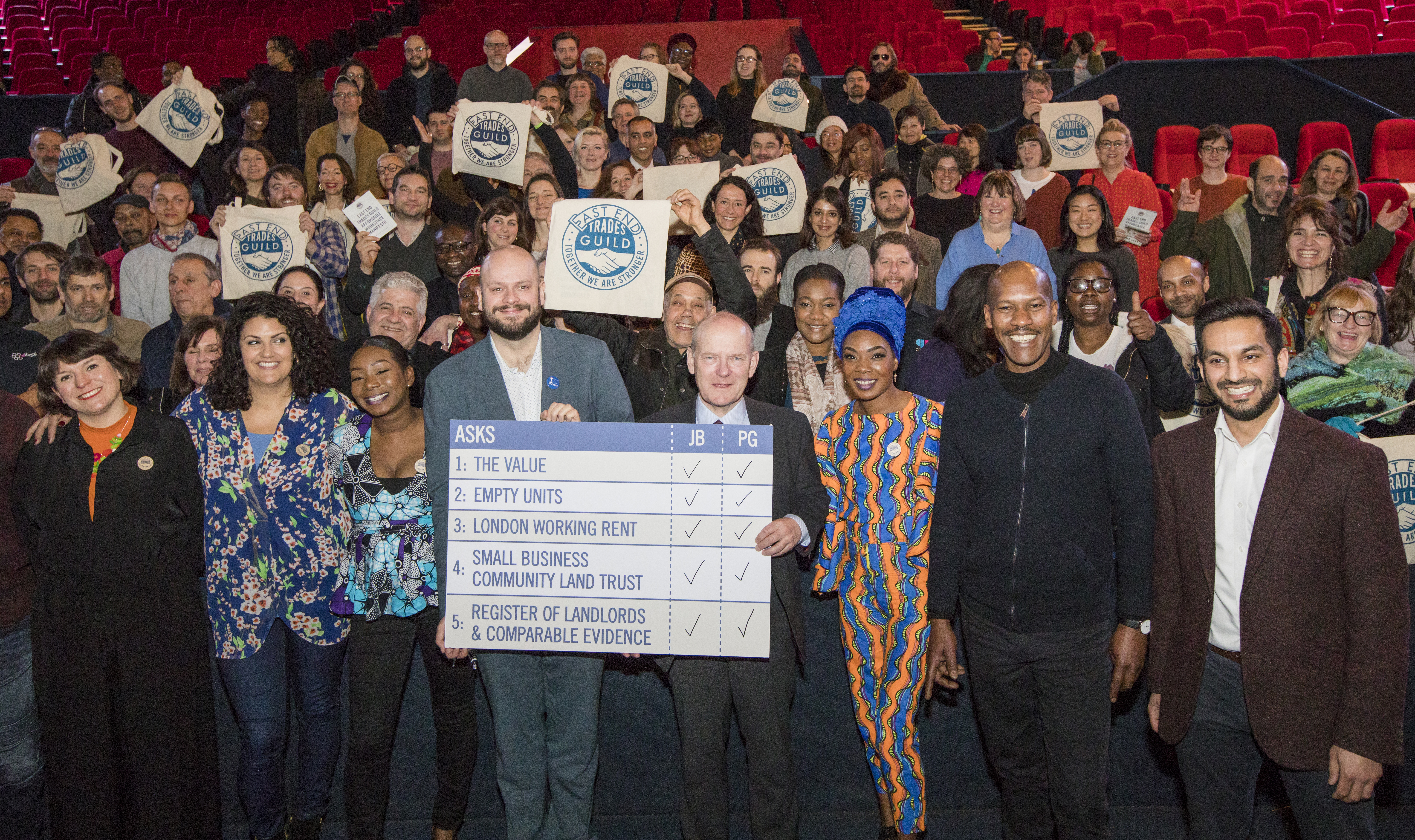Innovative initiatives are emerging to improve the quality of work across the globe. The recently launched Future Work Awards aims to recognise and champion them. What are we looking for? What do we expect to find? And how can you get involved?

A good starting point is the burgeoning WorkerTech scene in the UK. A partnership between The Resolution Trust and Bethnal Green Ventures has spawned initiatives such as Organise, the UK’s first workplace digital campaigning platform. Among their successes, Organise can count helping McDonald’s staff get their biggest pay rise in 10 years.
But traditional trade unions are innovating too. Through a partnership with IndyCube, a network of co-working spaces, Community Union are offering a range of services to self-employed people, including affordable invoice factoring. And the TUC has recently launched WorkSmart, an app to support younger workers who could benefit from union membership.
Even businesses such as Tesco are experimenting with technology to offer workers greater control and flexibility over shift scheduling. While Uber are piloting city-based engagement programs for their drivers.
Previous RSA research has highlighted how across Europe and North America, self-employed workers are banding together to address the challenges they face in the labour market. Based in San Francisco, Loconomics is a platform for booking local services (akin to TaskRabbit), which is cooperatively owned and governed by the service professionals that use it. And in Denver, Colorado, Green Taxi Co-operative has licensed an app which enables them to compete with other platforms.
In the Netherlands, self-employed people can join Breadfunds, a mutual sick pay fund, where members also offer each other practical support in times of ill health. While in France and Belgium, Business and Employment Cooperatives (BECs) such as Coopaname act as umbrella organisations for freelancers, enabling them to pool together business administration and other services such as training and workspace.
There is no one future of work
So far, we have only scratched the surface. Our search for the Future Work Awards is global. And our themes are diverse, spanning skills and training, worker voice and economic security (a full list can be found on our website).
However, we expect that in different countries, different innovations will be having the greatest impacts on workers because of the distinct challenges that they face. For example, many good work initiatives in the UK stem from trade union decline or growth in atypical forms of employment. But for parts of the world struggling with high levels of youth unemployment, the priority may be upskilling and/or job creation.
In our previous research we found that differences in economic and legal context can significantly affect the need for initiatives and their attractiveness to users. One of the reasons Breadfunds has over 12,000 members is because income protection insurance is excessively expensive in the Netherlands. But more reasonably priced services may be available in different markets. While BECs are essential in France because of differences in social security. Self-employed people don’t pay into the Government’s unemployment insurance fund but Coopaname enables them to become an ‘employee’ of the co-operative, meaning they are able to access these benefits.
Looking towards the future, trends can also appear more or less distressing in different places. Take the emergence of the gig economy. In the UK, this is often viewed as one whereby businesses are transferring additional risks onto workers. But in parts of the world such as South Asia, where so many are already independent workers, without employment protections to undermine, we should emphasise the opportunities. Economic activity will be better co-ordinated, with algorithms super efficiently matching supply and demand and creating more work in the process. And, as some commentators have pointed out, platforms can offer informal workers a degree of formalisation, by improving access to financial and digital services. Shifting from cash to e-payments, for instance, creates a transactional history that could help when applying for credit in the future.
How you can get involved
Through the awards, we hope to recognise and reward social innovators who are helping to bring about a better world of work. And by showcasing best practice from around the globe we want to encourage others to consider kick starting similar initiatives in their own communities and sectors.
If you run a good work initiative or know of one that deserves attention, you can submit a nomination through a short online form or find out more from our Future Work Awards site.
Nominations are open until mid-September, after which a panel of global judges will review the entries and announce the winners in November.
The Awards are hosted by the RSA Future of Work Centre and sponsored by Barclays. The RSA’s partners in the venture include the Canadian impact investor Social Capital Partners and systems design agency Alt Now Projects.
Related articles
-
4 key takeaways from Future Work Awards 2019
Fabian Wallace-Stephens
After 9 months of research we identified over 400 applicants for our inaugural Future Work Awards. Today we announce our winners.
-
A new machine age beckons and we are not remotely ready
Benedict Dellot Fabian Wallace-Stephens
We must push for an acceleration in the adoption of technology, but on terms that work for everyone.



Join the discussion
Comments
Please login to post a comment or reply
Don't have an account? Click here to register.
Good to see the RSA Future Work Centre established to explore the world of work as it's trending. The Australian Career Book Award - supported by the RSA ANZ has been established to identify 'good' career writing to help people negotiate their emerging employment reality. It's not a reality that we can predict, and we may need to temper our natural optimism with understanding some harsh realities.
We've established an outstanding Award Committee to make the final decision based the Award Criteria 5Rs - readable, reachable, reliable, relevant, and researched. These are backed up by well-designed award descriptors so the committee will be able to consistently evaluate the books against these global criteria. We think the descriptors and both 'reliable and valid' and will help members get to a fair result.
The RSA ANZ Director, Philipa Duthie, and I (the Award Convenor) have seen the incoming books and they are all excellent. I hope our descriptors are up to the challenge of distinguishing between these distinguished books!
The mission of the Award Committee is to make a decision on the 'awarded book for 2018'. We decided not to go with 'winner' - as all the books are winners in their own way. This may seem like OTTPCism but as a career writer myself (in the ironic position of being now unable to nominate my own books) I know the dedication of career writers tapping away in a cold garrett with a snuffling candle on the wobbly pupitre - my editor tried unsuccessfully to control my exaggerated metaphor.
The second priority, percolating away in the background, is to develop a database of current work and career issues to inform RSA speakers and commentators, and to be a force for reason and research in the world of work disruption and 'fake work news' that causes unnecessary anxiety for people and masks the real issues that are evolving. OK ... no answers yet .. but perhaps we could have some input into the Future Work Centre activities. We've just released the 'Finalist Books 2018' - see www.careermelbourne.com for the list. We will also have a review of each finalist book - and naturally, 'The Awarded Book'. These reviews may show the issues 'down under' that may be similar to 'up over'. We'll see. Congrats on your great initiative - that's not fake news!